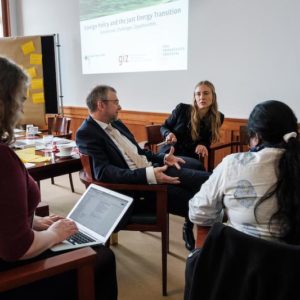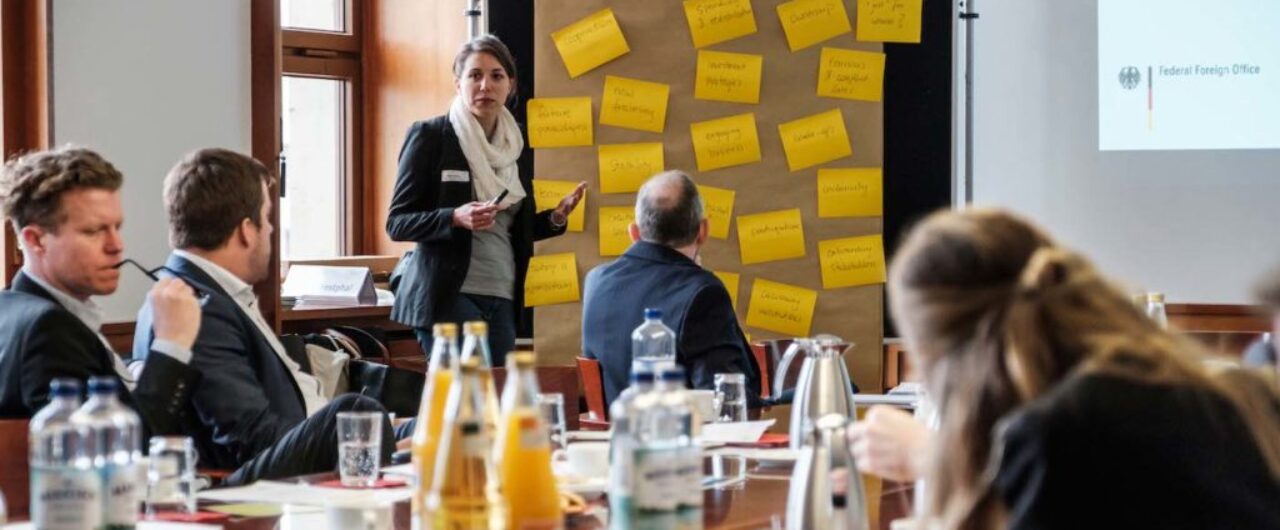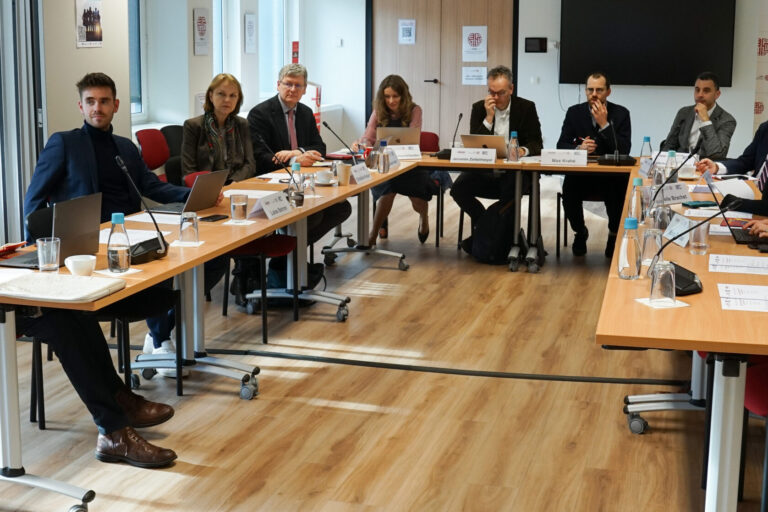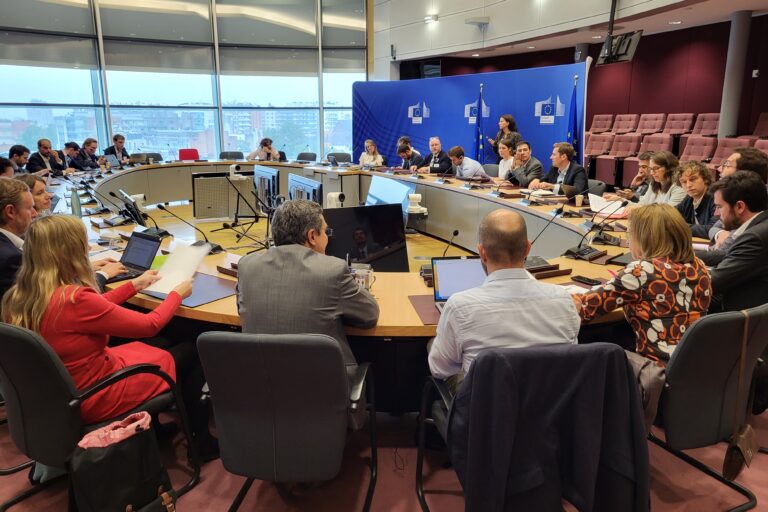On March 29, experts and practitioners from eight countries met at the Federal Foreign Office to discuss the concept of Just Transition and exchange good practices on the way to its successful implementation. The event kick-started the ‘Foreign Policy and the Just Energy Transition’ project, aiming to provide new impulses for the global energy transition as a whole, particularly in the context of Germany’s membership in the United Nations Security Council and its upcoming presidency of the Council of the EU.
The transition to a more sustainable system of energy supply is happening globally. It not only supports climate protection but also offers numerous economic benefits. A transition to a carbon-neutral society will affect every aspect of how societies produce goods, provide services, travel, and consume. The Paris Agreement (UNFCCC 2015) was a milestone, where to date 185 countries have ratified the convention and committed themselves to transform their development path in order to limit global warming to 1.5°C above pre-industrial levels. The Nationally Determined Contributions (NDCs) of the Paris Agreement and the Sustainable Development Goals (SDGs) of the United Nations’ (UN) Agenda 2030 provide the objectives to be achieved. However, there still is a long way to go, and there is no inevitability about the process.
Just Transition: A Challenging Opportunity
The conclusions met during our international workshop with practitioners and experts from all over the world left no doubts: energy transition cannot be paused anymore. A change is in the making and it is the authorities’ responsibility to shape and manage it, not only with regards to technology but also its transformative potential for the society, economy and culture. It’s crucial to understand that the energy transition is not only about the phase-out of coal. But then, what is a Just Transition?
Shaping transition policies involves numerous challenges. The poorest social strata, as well as the poorest countries (e.g. Sahel), are double-burdened: not only are they the most affected by climate change, but often also cannot afford to catch up with the transition on a costly technical side. Therefore, designing the transition justly means identifying potential “losers” in advance as well as inventing appropriate ways to cushion structural mismatches. To do so, a comprehensive policy assessment is needed, closing knowledge gaps. Secondly, public institutions with relevant financing mechanisms integrated into a regional development plan must be put in place as this kind of institutional backup can stimulate the speed of the transition. Therefore, Just Transition is more of a process than a phenomenon: it is a multi-dimensional systemic change that involves trade-offs and costs before the benefits emerge.
The discussion on structural change is often related to the rise of populism and arguments embarking on economic nativism. Opposed to that, a broad majority of people can relate to the concept of Just Transition. This could be a chance for building broader support for coal phase-out. Therefore, Just Transition needs to be ambitious – given the urgency of climate change but at the same time humble – when taking into consideration social cohesion and change management. Moving fast and moving just at the same time seems to be the key challenge.



How Foreign Policy Can Contribute
It might seem odd to combine foreign policy with energy topics. However, there are synergies that can boost the speed and quality of energy transition worldwide. The intergovernmental consensus is not only crucial to exercise energy transition diplomacy as a form of soft power. There is no blueprint for how to manage and do a Just Transition, therefore mutual learning and international cooperation is so important for this process. The experience of structural change should be compared and shared among countries to avoid repeating past mistakes and moving towards the Paris goal as quickly as we can!
At the same time, we need to remember that the Just Transition is not only about technological change – it’s about values and human rights. Since the concept of justice is a value of the foreign policy, multilateral cooperation is needed to pursue the Just transition in countries who cannot afford it. Simultaneously, the aspirations of the developing countries need to be acknowledged and flexibility must be provided in designing their own policies. Diplomacy can, therefore, contribute to the Just Transition by bringing different state actors together as the challenges are similar around the globe. Foreign policy is crucial in building bi- and multilateral conversation in search of 21st-century solutions and best practices. The Just Transition conversation involves geopolitics, geoeconomics and socio-political dimensions, like democracy and stability. It’s also about global governance of state and non-state actors acting transnationally. Therefore, a tool-box for diplomats should include a new methodology for geopolitical change management and new forms of intergovernmental dialogue.
With this in mind, we hope to come up with answers, good practices, and inspiring ideas during the second workshop within the Just Energy Transition project, this time focusing more on policy-making processes in the fields of energy and foreign policy.



About the event
The international workshop on March 29 took place in the Federal Foreign Office in Berlin and was part of Foreign Policy and the “Just Energy Transition – Dimensions. Challenges. Opportunities.” project, supported by the German Federal Foreign Office, in cooperation with the Deutsche Gesellschaft für Internationale Zusammenarbeit (GIZ) and Das Progressive Zentrum. The outcomes of both scheduled workshops will be translated into an inspirational and solutions-oriented paper, discussing best practices for a just transition and their international scalability.









